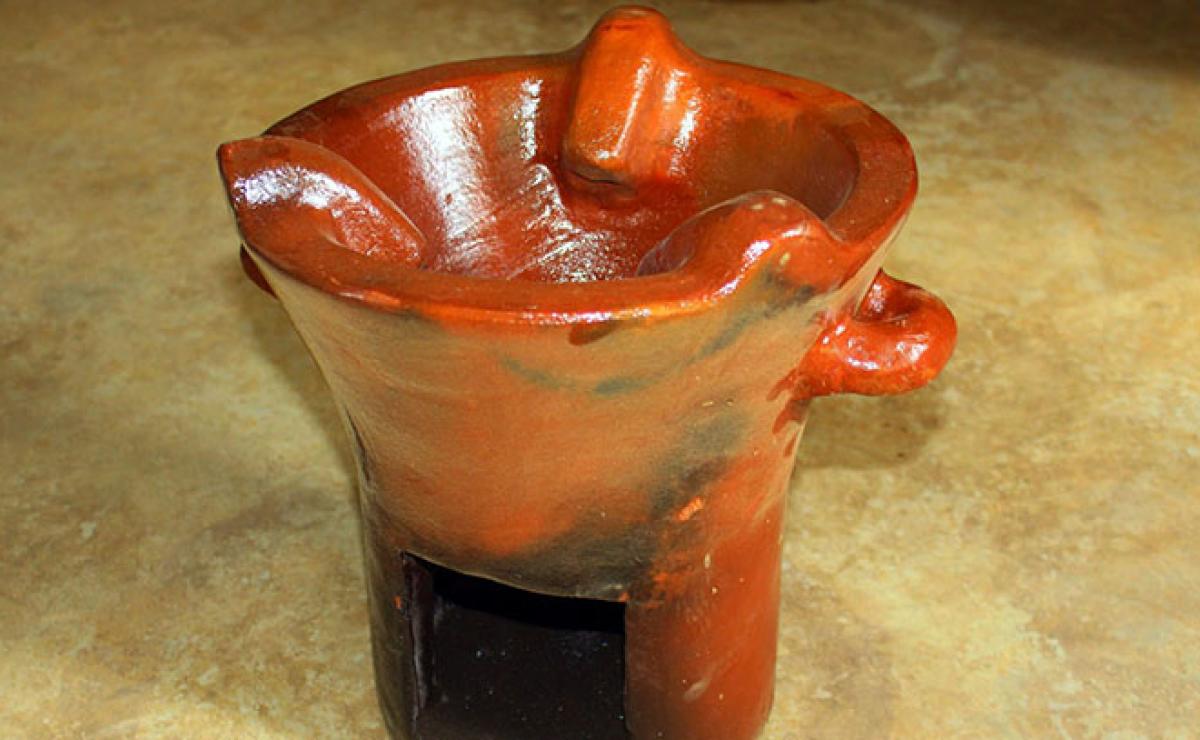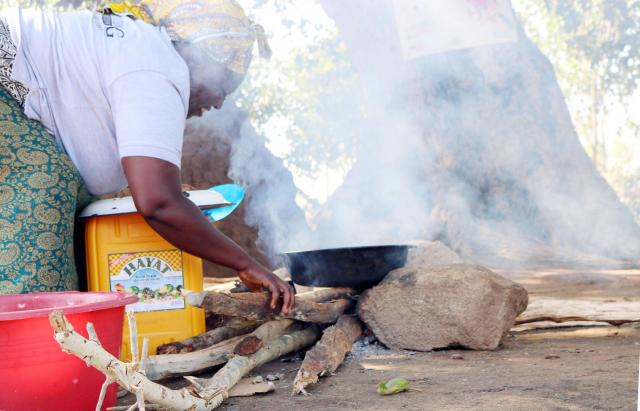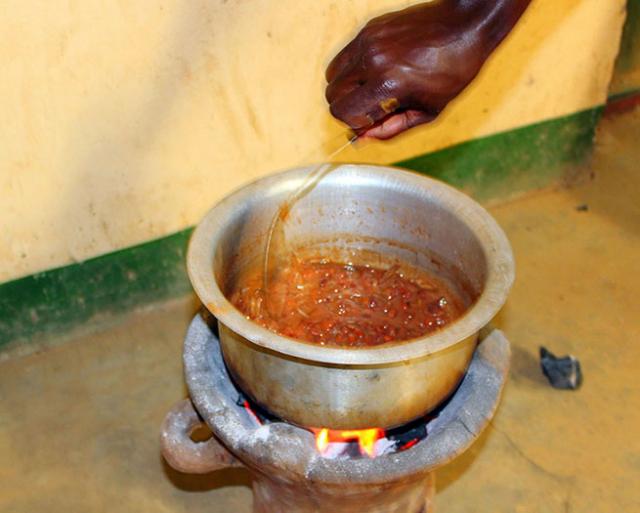Matawi: an eco-stove that cooks and protects the environment

Matawi is a trending new type of stove in Kitgum and Pader districts in Uganda’s Northern region. The eco-stove was introduced in a region where the three stone stove is predominantly used for cooking. Unlike the three stone cooking stove, Matawi is environment friendly; its smoke free, requires less fuel and is sustainable.
Molded to perfection, Jiko Matawi was created by a duo of local stove Artisans trained by the Lutheran World Federation (LWF) under the Teko wa project funded by the European Union (EU). “We developed the stove to protect the environment by reducing the amount of fuel used for cooking thereby reducing tree cutting and carbon footprint emitted as smoke from the cooking fuel used in three stone cooking stoves.” Says Raymond Kalokwera, one of the Matawi stove Artisans.
Kalokwera explains that Matawi stove is molded from fermented clay which is dried through high temperatures in a kiln to reinforce its properties including; a high thermo efficiency of over 40%; light weight of 5 kilograms and durability of approximately 8-15 years.
The Matawi stove is manufactured in 2 portable sizes to meet different cooking needs like; a single burner, and a double with an oven style. Both the sizes are affordable as they cost between 15,000 UGX and 42,000 UGX.

Jiko Matawi satisfies users’ needs
Nyero Dreake a Biomass Energy Technology expert with LWF explains that the Matawi stove not only serves the environment but also meets the social, health, economic and technological needs of users. Dreake explains that the eco-stove is portable, inexpensive yet technologically advanced, durable and doesn’t pose health social and health risks like the three stone open stove.
People using the Mataawi stove speak highly about it. Irene Ayo is a resident of Kitgum district who uses the stove for cooking. She describes it as safe and a fast cooker. “Unlike the three open stove that risks fire outbreaks in homes, Jiko Matawi doesn’t have an open flame which makes it safer.”
Caroline Adee from Palabek Gem sub county in Lamwo district says the Mataawi stove doesn’t pose health risks to her family unlike the three stone stove her household was previously using
for cooking. While using the Matawi cooking stove, Paul Okema from Pader district says they save up to 75% of the fuel they had to use while using the three stone open stove. “The stove is smoke free which protects us from eye and respiratory infections and also uses little charcoal compared to the bundles of firewood required by the three stone open stove.” Adds Okema.
Okema’ s children don’t have to go to bushes to cut trees for firewood. “We now use charcoal instead of firewood which makes me worry less about my children’s safety because they don’t go
to bushes anymore.”

An eco-stove improving livelihoods
Other than cooking and protecting the environment, the Matawi stove is currently a source of income for many and the industry continues to employ more. The pair of Artisans who created the stove have earned UGX millions from stove sales and continue to earn more. “We have so far sold over sold 100 Mataawi stoves to people in Lamwo, Pader and Kitgum districts through trade exhibitions and house to house sales.”Says Stephen Okot who adds that they are using the income to expand their small stove enterprise and to improve their lifestyle.
The Matawi stove is highly wanted by the people of Lamwo, Kitgum and Pader. This has enticed commercial enterprise middlemen to buy the stove in bulk from Artisans for reselling. “We have partnered and supplied 60 stoves to 4 retailers in Kitgum town.”Says a beaming Kalokwera.
To influence environmental protection through the use of eco-stoves and to facilitate more people to earn from crafting eco-stoves, LWF with funds from EU projects plans to equip more people with skills of making eco-stoves and installing commercial kilns for mass production.
LWF’s environment protection activities in Uganda are funded by the European Union, Church of Sweden, UNHCR and Bread for the World.

